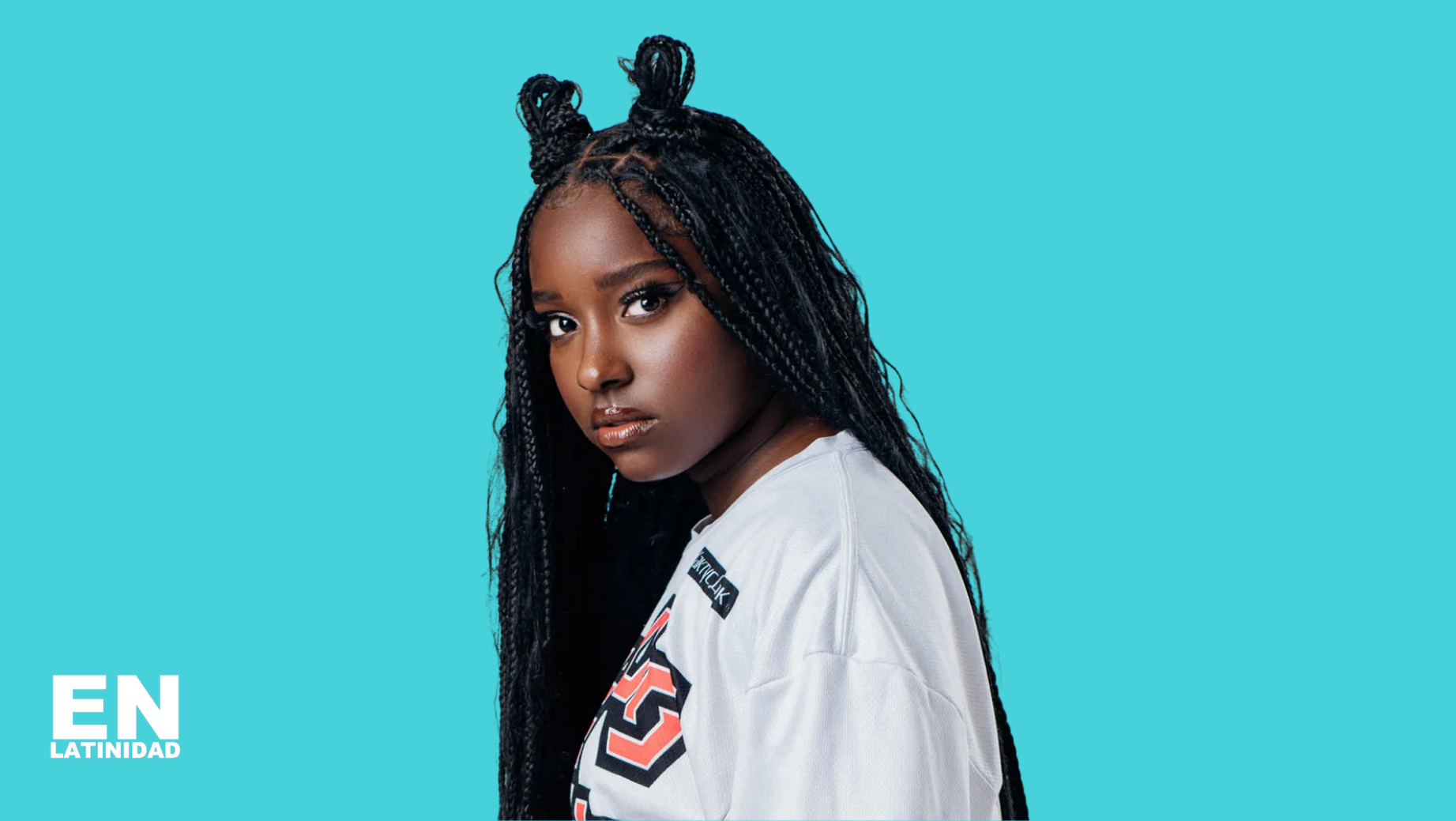‘La Hija del Rap’: J Noa’s Powerful Mark on Dominican Hip-Hop
Armed with razor-sharp lyricism and a fearless sense of purpose, the Dominican Republic’s fiercest young rapper is proving she can do it all. From conscious street freestyles to emotionally layered storytelling and genre-blending experiments, J Noa moves effortlessly across styles without ever compromising her voice. Whether she’s tackling mental health, gender inequality, or the realities of growing up in the barrio, her versatility isn’t just musical—it’s ideological. She delivers bars with the precision of a veteran and the urgency of someone who knows her voice carries weight. In an industry that often demands artists pick a lane, J Noa carves out her own. “la hija del rap”, she began writing rhymes as a child, using poetry and wordplay to navigate her environment and express her sharp observations about life in the Dominican barrios. At just 18 years old, J Noa has emerged as one of the most dynamic voices in Spanish-language rap, delivering bars that are as socially conscious as they are technically precise. In a landscape often dominated by male voices and commercial formulas, J Noa’s presence feels radical and refreshing.
From the beginning, her artistry has been marked by depth. One of her earliest viral moments came from a freestyle with DJ Scuff, which catapulted her from local circles to international attention. That breakout eventually led to a deal with Sony Music Latin, and in 2023 she dropped her first EP Autodidacta, a project that firmly established her as more than just a viral moment. The project’s title—meaning “self-taught”—reflects how she’s honed her craft by studying rap on her own terms, absorbing influences from her community, Dominican street culture, and global hip-hop. Her lyricism quickly earned critical acclaim, including a nomination for Best Rap/Hip-Hop Song at the 2023 Latin Grammys.
Her ability to write emotionally grounded, socially conscious verses is unmatched in her peer group. On the song “Betty,” she tells the story of a young girl navigating teen pregnancy, drawing directly from the realities she’s witnessed. “This story might not have a happy ending,” she says, “but it has a real one.” That storytelling approach shows up again in “Era de Cristal,” a track and video that deals with depression and mental health. “For me, it was important to touch on this very personal topic that people do not understand,” she said. “A person with depression cannot be ignored. I felt that I needed to talk about this topic because I have gone through it.” These themes of vulnerability and resilience elevate her music beyond entertainment—her songs function as testimony and call to action.
J Noa’s lyrical agility has earned her respect far beyond the Caribbean. In one of her most talked-about moments, she dropped a freestyle for legendary hip-hop icons DMC, Grandmaster Caz, and Sha-Rock in the Bronx, all in Spanish. “I’m not Natti, but I have a very criminal flow,” she rapped, eliciting praise from the pioneers. It was a symbolic full circle for a Caribbean-born artist rapping in the heartland of hip-hop, and proof that her talent transcends borders and language.
In May 2024, J Noa released her debut full-length album Mátense Por La Corona, produced by Grammy-winning producer Trooko with engineering support from Faster and RIKE Music. The ten-track project expanded her sound palette to include not just hard-hitting rap, but also pop, trap, rock, and spoken word elements, without ever losing the core integrity of her voice. She said the project marks a new chapter in her career, representing both her musical growth and her ability to reflect the complexity of her generation. Songs like “No Me Pueden Cancelar” speak to her confidence and refusal to be boxed in, while “Nana” and “Mi Barrio Me Llama” show her tether to her roots and responsibility to uplift her community. In interviews, she’s made it clear that her music is not just for entertainment—it’s a platform for dignity. “This is not a man’s industry,” she told People en Español. “This industry is for talented, capable, and courageous people to face the world without fearing anything… being Black is not a reason to stop a dream.”
Her recent inclusion on Goyo’s 2025 album Pantera—on the track “Hablan de Mí”—further underscores her growing reach and influence. Trading verses with the legendary Afro-Colombian rapper, J Noa holds her own and then some, delivering sharp, high-speed bars that affirm her position among the most exciting young lyricists in the Spanish-speaking world. The collaboration is a generational handoff of sorts: two Afro-Caribbean women using rap to assert their agency, cultural identity, and storytelling power.
What makes J Noa so compelling is not just her technical skill, but her clarity of purpose. Whether she’s talking about mental health, street violence, colorism, or feminism, her lyrics feel lived-in, urgent, and necessary. She doesn’t ask for space—she takes it, on her own terms, and invites other young women, especially Black and brown girls from the Global South, to do the same. “I feel a responsibility to defend my barrio,” she said in her Rolling Stone profile. “My people are counting on it. I need to represent them.”
In just a few years, J Noa has gone from battling boys in Dominican street cyphers to performing on global stages, earning critical acclaim, and reshaping Latin rap. With projects like Autodidacta and Mátense Por La Corona, and features with respected artists like Goyo, she’s not just the future—she’s the present. An original voice with an unshakable message, J Noa is making sure her name, her story, and her community are impossible to ignore.





Leave a Reply
You must be logged in to post a comment.